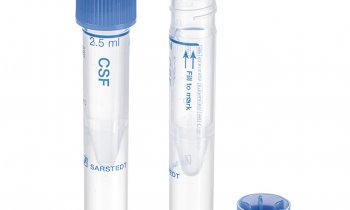More sleep can reduce delirium in intensive care patients
Delirium can lead to short- and long-term confusion and memory problems
A hospital is not the best place to get a good night’s sleep, especially in a noisy intensive care unit.

It’s a cause for concern because studies have shown that a lack of sleep can cause patients to experience delirium—an altered mental state that may delay their recovery and lead to short and long-term confusion and memory problems.
A team of doctors, nurses, psychologists and pharmacists in the medical intensive care unit (MICU) at The Johns Hopkins Hospital implemented a project to see if by taking simple steps to reduce nighttime noise, light,and staff interruptions, as well as stopping certain medications for insomnia, they could reduce delirium and improve patient perceptions about the quality of their sleep. Their findings are described in an article posted online by Critical Care Medicine that will be printed in the journal's March issue.
“With our interventions, we were able to improve a patient’s odds of being free of delirium in the ICU by 54 percent, even after taking into account the diagnosis, need for mechanical ventilation, age and other factors,” says Biren Kamdar, M.D., M.B.A, M.H.S., a Johns Hopkins pulmonary and critical care fellow who led the initiative. “In addition, many patients said that the ICU was quiet and comfortable enough for them to get a good night’s sleep,” he says.
Three sets of interventions were introduced in stages. The first was a 10-item environmental checklist that included turning off televisions, room and hallway lights, safely consolidating the number of staff visits to patient rooms overnight for drawing blood and giving medications to reduce interruptions, reducing overhead pages and minimizing unnecessary equipment alarms.
In the second stage, patients also were offered eye masks, ear plugs and tranquil music. In the final stage, a new medication guideline was introduced that discouraged giving patients certain commonly prescribed drugs for sleep, such as benzodiazepines, that are known to cause delirium.
Before all of the interventions had been instituted, the researchers did a baseline assessment of 122 patients in the intensive care unit over an eight-week period. After all of the measures were in place, another 178 patients were evaluated.
“Each patient was evaluated twice a day for delirium using the Confusion Assessment Method for the ICU (CAM-ICU), a widely used delirium screening tool. After 13 weeks, during which all of the interventions had been in place, we saw a substantial reduction in patient delirium compared to the baseline group,” Kamdar says.
The researchers also measured patient perception of their sleep quality with a questionnaire given to each patient by MICU nurses every morning. While there were positive findings in that measure, the improvement overall was not statistically significant.
“This is a unique study in terms of the number of patients involved and the three stages of interventions,” says Dale M.Needham, M.D., Ph.D., associate professor of pulmonary and critical care medicine at Johns Hopkins who is the senior author of the study article.
“Delirium is a syndrome of confused thinking and lack of attention. It typically comes on quickly with illness, and it’s a marker for the health of the brain,” says Needham. “We put together a common-sense approach to change how care is provided to see if by improving sleep, we could reduce patients’ confused thinking, and it was effective.”
Needham also says that physical rehabilitation is important for the recovery of intensive care patients, and if they’re sleepy or delirious during the day, they can’t appropriately participate in their therapy.
“Up to 80 percent of ICU patients may experience delirium during their stay. The longer they have it, the higher their risk of long-lasting problems with memory and other cognitive functions. With advances in medicine and technology, many ICU patients can now recover and go home, so reducing their risk of delirium in the hospital is very important,” Needham says.
The project was supported by a Ruth L. Kirschstein National Research Service Award from the National Institutes of Health for Dr. Kamdar’s work on the initiative (F32 HL 104901).
The intervention was conducted before The Johns Hopkins Hospital opened a new building with 560 spacious, all-private patient rooms, including a new MICU and other intensive care units. Clinical areas throughout the new building have sound-absorbing features to reduce noise, and there is a new nurse call system that replaces overhead paging.
20.02.2013











